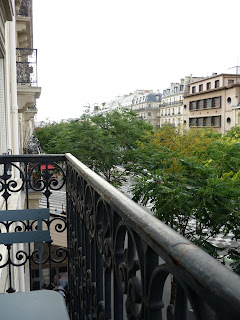
The Bradshaw Variations was a novel I saw while over in the UK and while it tempted me there and then I didn't buy it due to my bag already being overflowing (not to mention bloody heavy!) with books. It did stick with me however and when I got home and couldn't find it anywhere in bookshops here I ordered it from The Book Depository.
I have not read any of Rachel Cusk's books before so in terms of her writing style I had nothing to compare this book to and no real expectations. What tempted me into reading this book was it's description and also an interview I had read with Cusk where she came across as an honest, straightforward woman with clear thoughts and opinions around life, motherhood and the broader role of women within society.
The Bradshaw Variations focuses on the three adult Bradshaw children, their elderly parents and their respective families although the main characters of the novel are Thomas Bradshaw, his wife Tonie and their young daughter, Alexa. Tonie has recently been offered, and accepted, a promotion in her academic position at the University where she works. She is now the Head of the English Department and as such her hours and workload have increased dramatically. As a result of this promotion there has been a change in the family structure with Thomas resigning from his working life to take on the care of Alexa and to focus on developing his artistic life in the form of piano lessons. Thomas's brothers and their families as well as the Bradshaw parents are also included in the narrative of the book which often reads like a series of interconnected short stories rather than a comprehensive novel.
Having not read any of Cusk's work before I am not sure if this novel is indicative of her style but if it is I have to say, I don't think I will be picking up another one of her novels. The narrative was incredibly wordy, repetitive and complex. The characters would often engage in lengthy inner monologues with themselves which did not really add anything to character development or plot from what I could tell - it just made me dislike the characters and become inpatient with the story. I mean, I know we all have inner thought processes but these characters were so introspective I'm not sure how they got anything else done! For example;
But it is true that Thomas has never been quite that sure again, that he became more doubtful as Tonie's promotion became more of a certainty, that even now he appears to be going through a process, an adjustment, as though life has simply hardened around him again in its new forms and the revelation that set it in motion is nowhere to be found. It has no concrete existence, this revelation. It has no reality. It merely changed, for an instant, reality's properties, as the flame changed the candle and sent it running over the edge of itself, running and running into new paths as though it sought to be free of what it was, of what it became once more as soon as it reached the air and stiffened in its tracks (Page. 18)
Maybe I am being too harsh but I just found this book painful to read - I did not connect with the characters at all and the story lacked focus and direction for me.
I am also unsure of what message Cusk is trying to send about the role of mothers who work outside the home. The ending of the book really left me wondering about this so I would love to hear from any of you who have read this one and what your thoughts are.
Not the book for me unfortunately.















